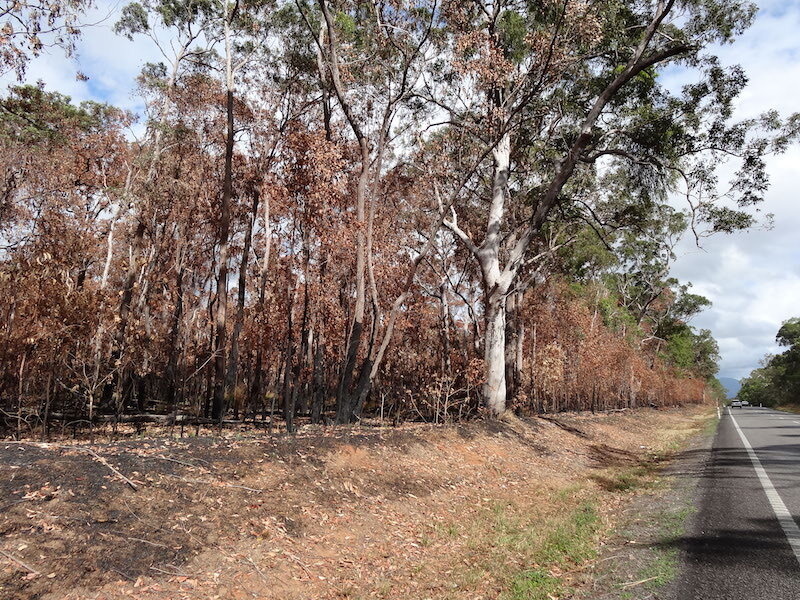Rod Hillman has issued a position statement on behalf of Ecotourism Australia that addresses bushfires, long-term recovery efforts and pre-empting the impacts of coronavirus on the ecotourism industry. Mallika Naguran reports.
Launceston, 6 February 2020. Ecotourism Australia makes known its Bushfire Recovery Position Statement highlighting the key considerations for all involved in recovery efforts and the recovery actions needed to restore ecotourism and nature-based tourism.
This is in light of “a perfect storm of crisis upon crisis”, said Rod Hillman, CEO of Ecotourism Australia, referring to the bushfires that are still raging in a few parts of Australia, recovery efforts and the unprecedented spread of contagious coronavirus.
In spite of the funding received from state and federal governments, the organization is seeking long-term assistance and mitigation efforts when the current crises are over.
Australia’s country charm can still appeal once recovery efforts and long-term support to the tourism industry, including ecotourism, are rendered. Photo: Gaia Discovery
“Ecotourism operators have been disproportionately impacted by the bushfires as the very asset we depend on, in many places, has gone – and will take significant time to recover. Rebuilding infrastructure is not enough – we need a considered approach to rebuild communities as vibrant, resilient and sustainable ecotourism destinations. We need to build best practice, build with changes to climate in mind and build back better than before,” said Hillman.
“Many of our operators will need financial and emotional support to survive. Revenues have disappeared as costs continue to accumulate, all of which has significant impacts on their viability and their personal health. More can be done by governments in this area by providing similar support as provided to the farming sector,” he added.
The role of protected area management agencies (PAMs) and supporting them was also highlighted to support their recovery efforts. “Significant and long-term financial support to our protected area management agencies (PAMs) is urgent and essential. These will require major increases to their recurrent and capital budgets – not only so that they can undertake the restoration of the natural and cultural assets impacted, but also so that they can work closely with the tourism industry and get areas open as soon as possible, allowing flexibility and innovative approaches to commercial tour operator licensing whilst the environment recovers. There is little doubt that expectations on PAMs to increase their fire management will be high,” he said.
Hillman called for close attention to the impacts of coronavirus on ecotourism as well. He trusts that the ecotourism and nature-based tourism industry will survive as they are made up of strong and resilient people and communities. “We’ve had tough times before and survived, and we’ll survive again. Pilot strikes, SARS, GFC – we’ve seen them all off. We just have another challenge. At Ecotourism Australia we will continue to utilise our connections, resources and expertise to support tourism businesses and regions during the hardships and recovery, and lead development towards building an increasingly resilient and sustainable sector,” he said.
A wide-ranging bushfire recovery position statement has been issued by Ecotourism Australia in an effort to rebuild damaged or affected ecotourism areas. Photo: Gaia Discovery
BUSHFIRE RECOVERY POSITION STATEMENT
The significant impacts on Australia’s natural assets from the 2019/20 bushfires have disproportionately affected the eco and nature-based tourism sector, as this industry is completely dependent on our well regarded and respected natural and cultural environment. Ten percent of our ECO certified members are in declared bushfire emergency areas and 100% of our members across Australia have been impacted by loss of bookings and revenue, or reputational damage.
Key considerations for recovery:
Scale. While natural disaster recovery is not new to us or our sector, the scale, intensity and international impact of this catastrophe requires a significant national response for, and by, our industry.
Timeframe. Natural disaster recovery requires both a quick response and a long-term view.
Opportunity. Recovery should build back better to benefit communities, conservation and businesses.
Business survival. Operators need support to survive until demand returns.
Partnerships. Working together will produce more positive outcomes.
Ecotourism Australia advocates for recovery actions that:
Provide emergency financial relief measures to eco and nature-based tourism operators, as regional Australia needs the industry to survive.
Offer flexibility in protected area licensing conditions for affected commercial tour operators.
Build demand for nature-based regions and reassure the market - e.g. by funding localised campaigns and offering tax deductions for domestic travel.
Develop bushfire recovery tourism products - e.g. interpretation toolkits, guiding, citizen science and volunteering.
Rebuild communities as vibrant, resilient and sustainable tourism destinations e.g. by using ECO Destination certification.
Repair and replace public and private infrastructure using best practice techniques, designs and materials.
Hold national/regional bushfire recovery forum(s) to share learnings, successes and plans for the future.
Provide significant long-term support for protected area agencies to comprehensively manage the land, wildlife and cultural values.
Establish natural disaster plans and responses to be better prepared for future significant events so that funds, support, and relief measures can be implemented immediately.
Photography by Jeremy Torr
Relevant Articles…

